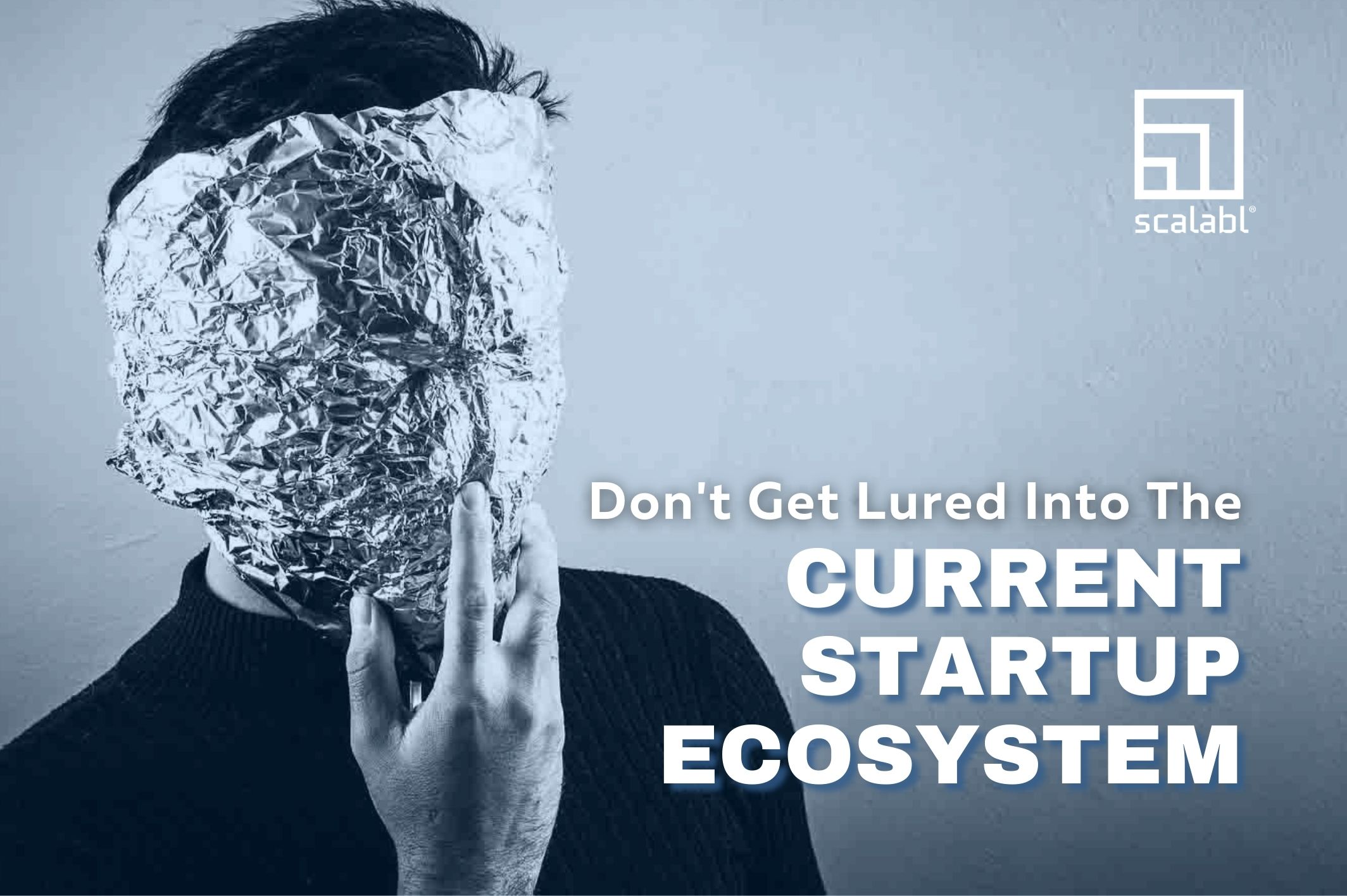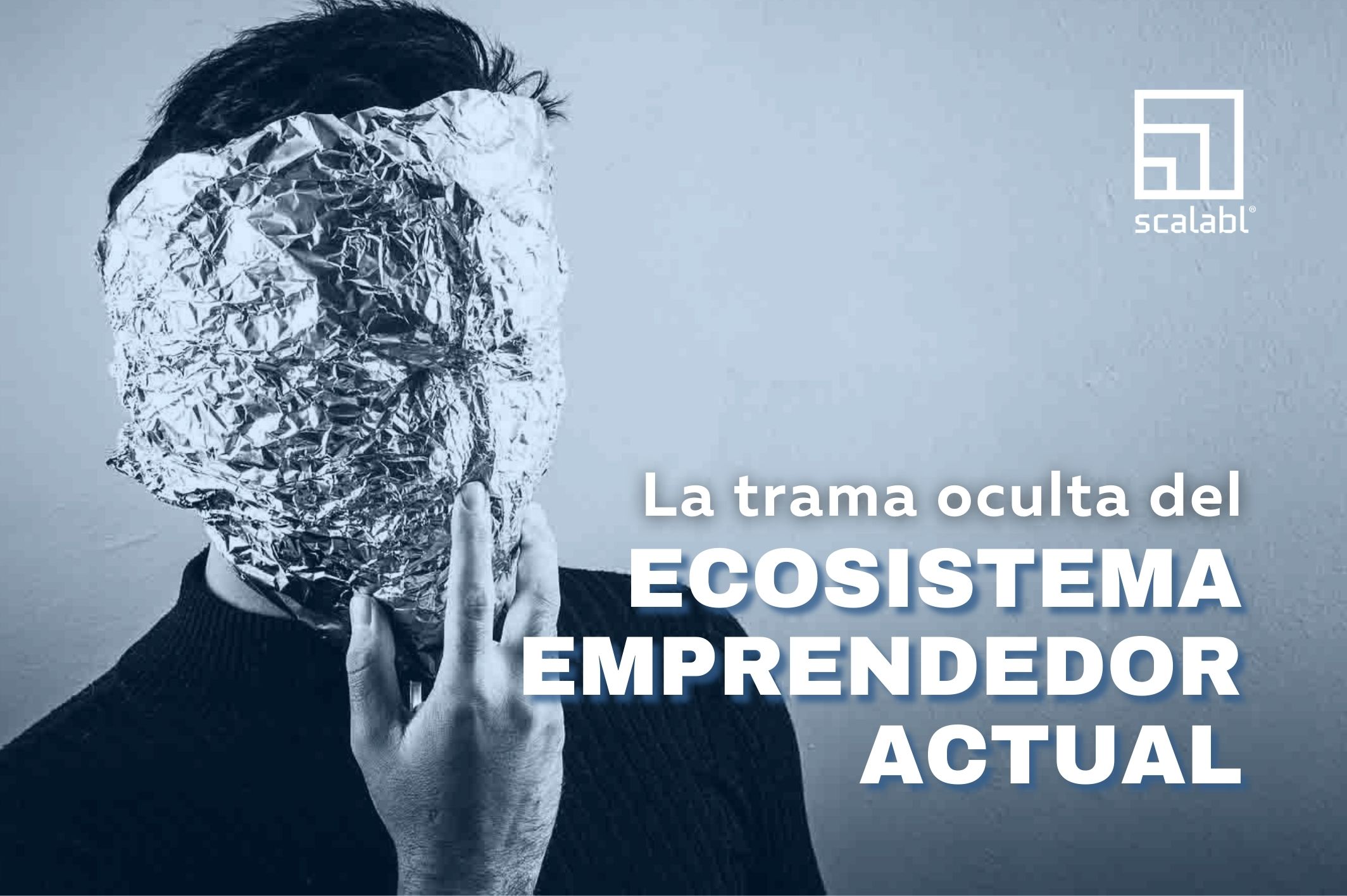

The path to success as defined by top-notch authors radically diverges from the advice and behavior of Startup Gurus, that nowadays control the current Startup ecosystem.

Venture Capitals (VCs), Accelerators, Incubators, Angel Investors, top-notch Universities and Governments still promote and follow the status quo of traditional Startups systems, usually with good intentions, but their lack of knowledge ends up causing devastating consequences. Exponential technologies, AI, robotization, and the expected loss of millions of non-qualified jobs drive many of these stakeholders to rapidly assign resources to copy-paste Silicon Valley's model without a clear understanding of how they work and their real-world application.
Entrepreneurship, as we now call the journey of turning the founder's vision into a "sustainable", real venture, is not something new, and has always been an intrinsic aspect of humans and our societies. It usually demands a mix of courage, intuition, emotional intelligence, resilience, anti-fragility, creativity, access to resources, and networking to succeed. One could even say that Entrepreneurship is an art form.
Around 2003 and 2004, some very qualified and knowledgeable authors (e.g. Steve Blank, John Mullins) started developing and putting together paradigm-shifting methodologies for entrepreneurship that lead to reducing risk and seriously maximizing chances of success. Still, the influence of many previous business books can't be understated, as the works of renowned business authors such as Geoffrey Moore or Clayton Christensen have become staples in the study and practice of Entrepreneurship. If interested, you can always have a look at some fundamental top-notch literature that influences our Scalabl's own startup methodology which we teach and apply. But let's get back to the point:
"Why, then, have the business plan and the raising of venture capital become seen as the centerpiece of entrepreneurial endeavor?" John Mullins
Startup Gurus and respected ecosystem stakeholders mention and recommend these same books but misguide the entrepreneurs they mentor by instructing them to act in the opposite way!
Is it lack of knowledge? Economical interest? What drives this behavior? Well, let me try to offer a simplified explanation:
1. Venture Capitals (VCs) are financial intermediaries, not investors. Before investing in Startups they raise their own money from high net wealth investors which are encouraged to assign around 5% to 15% of their portfolio to "risky" investments under the financial principle of diversification. Remember the well-known idiom, "Don't Put All Your Eggs in One Basket"? VCs shift their responsibilities in a clever yet questionable way by insisting that "Startups are risky" and then justify it by claiming that "only 1 over 100 succeed". In this way, investors comply with the financial principle of diversification, of investing low percentages (but a lot of money) in risky businesses and they end up winning by getting a high potential return on investment over 7 years.
2. You don't need experience in Startups or business to run a VC. Do you know the world has more than 2.000 billionaires, and this number continues to grow every day? Then, can you even imagine how many millionaires there are? Consider that 5% of 1 billion is 50M. The more money and liquidity (interest rates have continued to drop and are at low levels), the more opportunities for unknowledgeable financial intermediaries with high net wealth networks to get involved in the game. I'm not trying to generalize, I don't believe that these institutions are inherently bad per se. When Venture Capitals were originally invented, it was instrumental for building and developing many of the big corporations we know and admire today. They provided knowledge, network, and resources, which by then were scarce in such a centralized world, And they invested in powerful business models, with predictable sales roadmaps (there were few sales channels they could dominate completely). I recommend you watch the documentary "Something Ventured" to see the many differences between VCs back then compared to VCs today.
3. To run operations "properly", VCs charge an annual administration fee on money raised of 2-10%. They need to hire a top-notch team with business acumen and startup knowledge, which will be able to scan and select highly scalable and profitable startups from so many existing ones. Just remember as an example, 5% of 100M is 5M, 5% of 1B, is 50M. -
4. Imagine you are now a VC and have just raised 100M.
"What we have today is a system than transfers money to the coffers of bureaucrats" Nicholas Nassim Taleb
Would you invest your annual fee of 5 million to carry out the necessary administration, hiring professionals of the highest level, but without any certainty that you will create "the new Facebook" and profit from a percentage that you will have to return at 7 years?
Even with such a team, how much time would it take you to select the Startups in an effective way? What about the time value of money for investors? Why not implement a low fixed cost structure, hiring interns (with fancy degrees) just out from 1st year MBA (which at the same time raises the rankings of those schools) and partner with "Accelerators", "Incubators", "Universities", and now "TV Shows" for them to organize "Contests" & "Competitions" to access a relevant pool of startups (the missing part of the marketplace) and disburse the money quickly in small amounts (50k to 150k) while assuring great contract conditions for future rounds? Why not try to invest a relevant part of your fund's money in well-known (but not necessarily good) startups where other prestigious VCs have invested too and will almost certainly receive more funding series (even without due diligence)?
5. Distinguished executives, ecosystem stakeholders, government officials, and other figures are invited as honorary "Judges" to select the winners in an elevator pitch competition.
"Early Market Development efforts typically do not respond well to the massive infusions of capitals" Geoffrey Moore
I must admit that the system truly adopted some of the methodological discoveries, which simplifies the process so that more and more startups decide to enter this system (and be misguided) through the conversion funnel. They use top-notch theory in misguiding ways.
Before we used to have business plans and 20-30 minutes pitches, with intensive inquisitive questions. Now, a group of people that have just met in a hackathon present an inadequate business model canvas, an imaginative deck full of non-tested hypothesis, plus a 5 minutes "elevator pitch", and they think they're set, having become experts in their business without any practical experience. With this respectable allocation criterion in place: "they won a contest where X participated!", let me ask you something:
"No business plan survives first contact with a customer" Steve Blank
Would you really hand your money for risky business to people you don't know by watching them describe for 5 minutes an idea while mentioning exponential technologies and some kind of plan?
I am regularly invited to these contests as a judge or president of the jury, which are organized with the best intention by governments, NGOs, or universities to help entrepreneurs (help!). When I hear them speak, they haven't been properly trained, nor have they been taught how to apply correctly the new powerful methodologies at hand. They are miles away from a virtuous business model, and worst of all: they are going to get the money together with the terrible conditions which come with the deal: the contracts. They will feel really proud, validated by external forces, their ego will rise to the sky! What they don't really know is everyone will profit but them.
"No problem is too large for a sprint (a sprint costs nothing)"Jack Knapp
More Startups into the funnel derive in VCs raising more investors funds, executing more rounds, and swallowing more administration fees while preparing for their famous celebrated "exit". Even the literature they say they follow discourages the early raising of capital.
It is no coincidence that the "traditional knowledge" of the Startup Ecosystem measures success and Startup maturity as the number of rounds (series A, B, C, etc.), the number of exits, or the number of funds raised.
6. Then entrepreneurs sign the contract -oh, if you read those contracts!. They immediately become modern slaves, or as I call it, workers without labor rights! They become amateur actors, pitching full time, selling an image to the world, to their friends, to their families. They become fake heroes! While their anguish is strong and increasing they freedom is limited.
"You simply cannot spend your way into the hearts and minds of technology enthusiasts and visionaries" Geoffrey Moore
They do not have a clear Business Model, nor they know their customers' pains or gains, results are not coming, they are continuously trying to scale without a proven sales roadmap by pushing demand with more investment, creating a vicious cycle.
No one pays attention to the customer acquisition costs (CAC) or Customer Lifetime Value (CLV). More revenue brings more valuation and the illusion of success. More "illusion of success" (and burning off cash) generates more funding rounds, more pitches, and more profits for everyone, but this all falls apart when cash is not raised or investors have an incentive not to continue, and then the entrepreneur is the last to cash out, usually losing everything. Even if things go "well", everyone will assure their exit before the entrepreneur does, or if it goes even better, they will assure the entrepreneur's exit by firing the founder and keeping the company, after so many equity dilutions.
Luckily, and thanks to the work of many talented authors and researchers, there is another way of starting up! There is more to be said on the existing literature and methodology on other articles. But for now, always keep in mind this formula for starting out:
Early Stage Startup Success = Purpose (understand why you are doing what you are doing. It is the only thing that will reinforce your resilience when times are tough) + Knowledge (methodology, reading, learning from others, formulating and testing hypothesis instead of executing tight plans) + Community (networking, diversity, learning from others, learning how to actively listen and ask open questions, putting others first, understanding what is important for others) + Hard Work (it will never be easy! Forget about the illusion of being your own boss or working less) + Emotional Intelligence (the same anti-fragility, resilience, and attributes, the art form that the original entrepreneurs used to have) - Exposure to Risk* (reduced fixed costs, asset-light business models trying to reduce investment, get paid before you produce or need to pay your suppliers) - Seed Capital (which we are sure hurts entrepreneurs at an early stage).
*For now, to start learning on how to start your business without investment, check John Mullins’ great book: “The Customer Funded Business”



